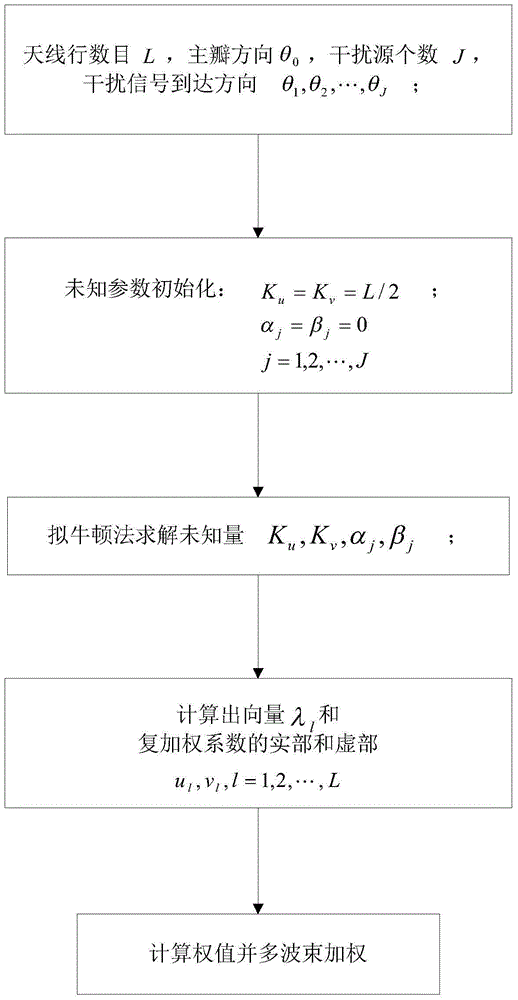Self-adapting space interference suppression method of one-dimensional phase scanning three-coordinate radar
An interference suppression and three-coordinate technology, which is applied in the direction of radio wave reflection/re-radiation, re-radiation, and measurement devices, can solve problems such as difficulty in ensuring real-time calculation of weights, limited radar dwell time, and limited number of auxiliary antennas, etc. , to achieve the effect of improving the target detection ability, shortening the weight solution time, and improving the survivability
- Summary
- Abstract
- Description
- Claims
- Application Information
AI Technical Summary
Problems solved by technology
Method used
Image
Examples
Embodiment Construction
[0022] refer to figure 1 . In order to describe content of the present invention conveniently, at first do following technical term definition:
[0023] Definition 1 Three-coordinate pulse Doppler radar system. In the radar system, in order to detect the spatial position of the target, it is necessary to obtain its azimuth angle, pitch angle, and radial distance relative to the radar origin, and pulse Doppler means that the radar transmits the waveform as a pulse, and through the joint processing of multiple pulses , which can realize the accumulation of target energy and obtain the Doppler information of the target.
[0024] Definition 2 baseband data. Baseband data means that the signal has been down-converted and has no carrier information.
[0025] Define 3 scan cycles. The radar antenna scan cycle refers to the time it takes for the radar to complete a complete scan of the entire surveillance area.
[0026] Definition 4 Signal Processing Distance Quantization Resolu...
PUM
 Login to View More
Login to View More Abstract
Description
Claims
Application Information
 Login to View More
Login to View More - R&D
- Intellectual Property
- Life Sciences
- Materials
- Tech Scout
- Unparalleled Data Quality
- Higher Quality Content
- 60% Fewer Hallucinations
Browse by: Latest US Patents, China's latest patents, Technical Efficacy Thesaurus, Application Domain, Technology Topic, Popular Technical Reports.
© 2025 PatSnap. All rights reserved.Legal|Privacy policy|Modern Slavery Act Transparency Statement|Sitemap|About US| Contact US: help@patsnap.com



